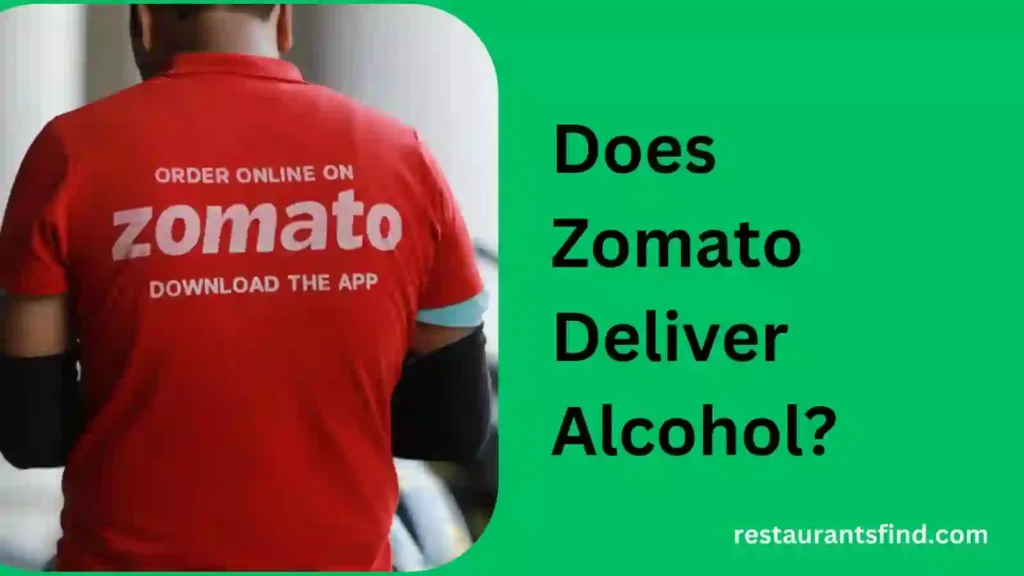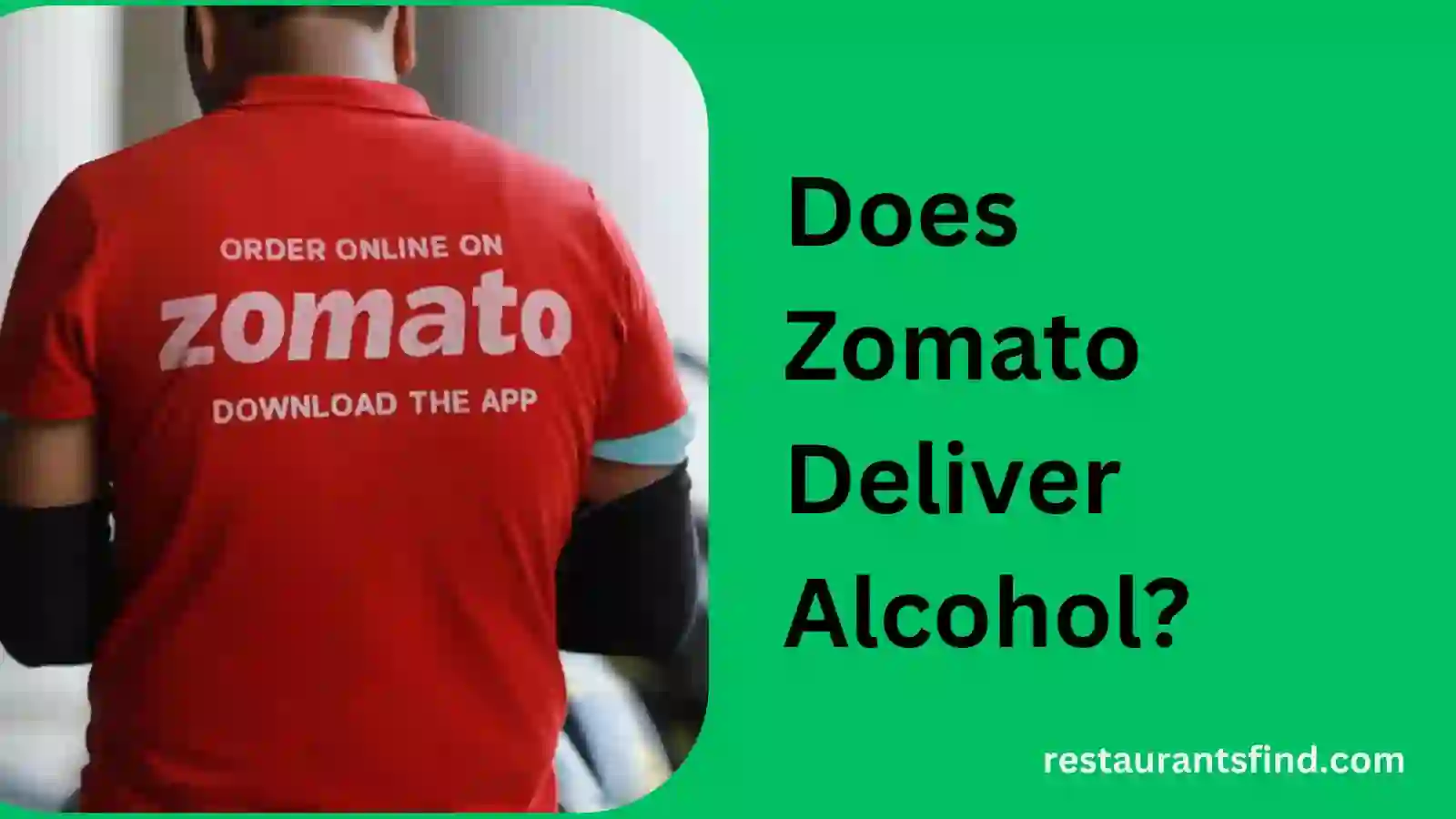Zomato, a household name in India, has revolutionized the way we eat. From humble beginnings as a restaurant listing platform, Zomato has grown into a food delivery giant, offering a vast selection of restaurants and cuisines at our fingertips.

But the food and beverage delivery landscape is ever-changing, and one question lingers: Does Zomato deliver alcohol?
Let’s explore this question by delving into the history of Zomato, its services, and the regulatory landscape surrounding alcohol delivery.
Does Zomato Deliver Alcohol?
Does Zomato Deliver Alcohol? The clear answer to this question is no. Zomato isn’t currently delivering alcohol, their relationship with the service is a bit more interesting than a simple no. But they did test the waters in 2020.
During COVID-19 lockdowns, they ran a pilot program offering alcohol delivery in a few Indian states like Jharkhand, West Bengal, and Odisha. However, the service was discontinued in early 2021.
While Zomato hasn’t made any official statements about plans for alcohol delivery, its focus seems to be on core food delivery operations for now.
Alternatives for Finding Alcohol Delivery Services in Your Area
- Grocery Delivery Apps: Check with established grocery delivery apps like Instacart or Amazon Prime Now to see if they offer alcohol delivery in your area. Remember: This option might not be available everywhere due to legal limitations.
- Restaurant Apps with Alcohol Options: Explore the apps of popular restaurants in your area. Many restaurants have adopted online ordering systems and might allow including alcoholic beverages with your food order. This is a good option if you’re craving a specific drink to pair with your meal.
- Search for Local Delivery Services: Look online for local delivery services specializing in alcoholic beverages. These services might not have a large national presence but could be a good option depending on your location. Try searching for “[your city] alcohol delivery” or browse online forums and local social media groups for recommendations.
Why did Zomato discontinue Alcohol Delivery Services?
Zomato stopped its alcohol delivery service because it was hard to grow and not cost-effective. They started offering alcohol delivery during the nationwide lockdown last year. However, they found it difficult to expand due to different regulations in different areas, making it complicated to manage.
Additionally, the costs of running the alcohol delivery service, such as logistics and compliance with local laws, were higher than the revenue it generated. This made it financially unsustainable.
Due to these challenges, Zomato decided it was best to discontinue the service and focus on other parts of its business that are easier to scale and more profitable.
While alcohol delivery services like Swiggy and Drizly have gained traction, Zomato’s foray into the market proved short-lived. Here’s a closer look:
Moreover, unlike food delivery, alcohol comes with a complex legal web. Regulations vary significantly by region. This makes it difficult for companies like Zomato to implement a nationwide alcohol delivery service.
They would need to navigate licensing, age verification, and responsible consumption protocols in each region they operate in.
While legal hurdles played a role, reports suggest Zomato’s decision to discontinue alcohol delivery stemmed from economic factors. The pilot program might not have achieved the desired scale or profitability compared to its core food delivery business.
The Future of Alcohol Delivery: Will Zomato Make a Comeback?
Zomato might bring back alcohol delivery someday, but it’s unclear exactly when. Their past try shows they’re interested, but for now they’re focusing on regular food delivery.
The future of alcohol delivery is uncertain, but one thing’s for sure: it’s an area that’s likely to change. Whether Zomato rejoins the game or new players emerge, expect to see more ways to get your drinks delivered responsibly in the years to come.
Conclusion
Zomato’s entry into alcohol delivery has been tentative and region-specific, impacted by changing legal and regulatory landscapes. While the company has undertaken experiments, the general adoption of alcohol delivery services is yet to be seen.
As the market for alcohol delivery continues to grow, Zomato may well seize the opportunity to expand its offerings, provided it can overcome the associated challenges.
The future holds potential for Zomato to innovate and adapt, continuing its legacy as a leader in the food delivery industry.

